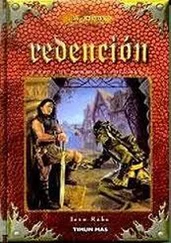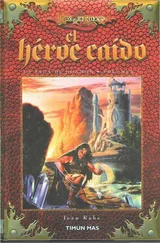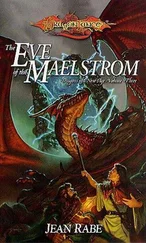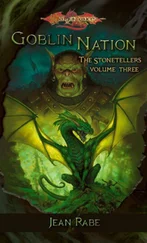Therefore it was with relief that Professor Daak felt the plane suddenly tilt down in a steep dive. As he fumbled to fasten his safety belt he muttered to himself words of consolation.:
“We must be there,” he said. “When I have rested I will feel better. Then I will start work…”
* * *
The legionnaires were assembled in the compound. Six of Gallast’s men—now armed with Lebels as well as Lugers—were watching them from the ramparts. The legionnaires were staring at the huge plane as it touched down more than half a mile away, then disappeared from sight as it stopped within thirty yards of the walls.
The silence seemed unnatural as the engines were switched off.
Then the gates—those puny gates—were opened. Gallast walked briskly out and towards the massive hulk of the machine.
He reached it as the side door opened and a steel ladder was let down on to the sand. A man in a grey uniform and a heavily braided cap descended. He was followed by two others similarly dressed. They saluted. Gallast, although in mufti, returned the salutes.
Gallast said: “I congratulate you—your timing is excellent. Has he taken the trip well?”
The pilot gestured towards the plane.
“He has not. He says he is ill. But it’s nothing—just the changes in atmospheric pressure.”
“And the equipment?”
“All here and unharmed.”
“That is good. Now perhaps I’d better see the professor.”
They started to move towards the plane. But at that moment Professor Daak appeared at the top of the ladder. He made a strange spectacle.
He was a small, stocky man, with an enormous paunch which strained against his quite unsuitable blue serge suit. Although he was well past middle age, he had the sort of pink, unlined oval face which suggests perpetual astonishment. At the moment his face was swathed in an unhealthy sweat so that it looked as if it had been coated with a transparent varnish. Whisps of grey hair protruded forwards from under his formal black hat. He was breathing heavily and painfully.
Professor Daak, emeritus lecturer in nuclear physics, looked ridiculous as well as ill.
He swayed at the top rung of the ladder and attempted to descend the wrong way round. The co-pilot and the wireless operator went to his assistance.
When he was safely on the sand Gallast shook his clammy hand. He said formal words of greeting. Then added: “All has developed according to orders. The garrison has been captured and until the day comes they will he put to work. They are ready to unload the equipment.”
Daak groped for a pair of pince-nez spectacles, clipped them on his angular nose. “I must rest,” he gasped. Gallast smiled.
“Certainly, professor. You have had a trying journey. But first you must supervise the unloading. Only you know how these delicate instruments must be handled. Without your assistance they may be damaged.”
Daak breathed yet more heavily. Despite his distress, he injected some force into his words.
“But I must lie down first. My heart—it is not strong. My head—it aches. This heat—it is like an inferno. I am not used to such heat. I am not used to anything here. Give me a little time.”
The pilot shuffled uneasily as he met Gallast’s eye. He tapped a finger on his watch. Gallast took the cue.
“We cannot wait, professor. You must know the orders—the plane has to be unloaded immediately and return without delay. Once the plane has gone everything here will appear normal to any passing Arab caravans. But if they see it here, they will talk. And such talk may reach French ears.”
“But just an hour…”
“Not even an hour. That is final. In all other matters I will be under your orders, professor. But on questions of security you must obey me.”
Daak looked as if he was going to protest again. But he did not. Even as he opened his arms to make a gesture the co-pilot took advantage of his position to remove his thick jacket.
Gallast gave a thin smile of approval.
“Now you will be cooler,” he said. “The work will not take long. I’ll call out the legionnaires.”
* * *
Under the threat of Lugers and Lebels, the garrison moved out of the fort and towards the plane.
And there was something strange about the way they moved.
They no longer shambled. Nor did they walk in everyday fashion.
They marched.
Without D’Aran or Vogel giving any order, they had formed themselves into files of three. They carried themselves stiff and upright. Their heads were held high. They kept parade ground step.
Though they did not fully realise it themselves, this was a return to their innate sense of discipline and to a pride in their calling. It was one way of showing that they were not yet cowed. Not finally defeated.
In fact, the garrison were recovering fast from the first paralysing shocks. They no longer lived entirely with fear.
They had become men again.
And as such, they had become dangerous.
It was slavery—serf-like toil in an oven. The crates varied only in the vastness of their weight. Not all were large, but often the smaller ones seemed the heaviest. They had to be carefully lowered out of the plane with ropes, then dragged slowly over the sluggish sand to the fort.
The legionnaires were divided into two sections— a smaller party of six (including D’Aran and Keith Tragarth) working inside the plane. The rest, Vogel among them, handled the crates when they reached the ground.
After hesitating about his best location, Professor Daak supervised from inside the bomber. There, at least, he was sheltered from the direct rays of the sun. And, sitting in his passenger seat, he recovered some of his vigour.
His breathing became more controlled. His orders became more precise—and more exasperating.
It was the manner in which he delivered those orders. Like a chemist repeating the results of a clinical test. He did not speak as if he was dealing with flesh and blood. His attitude towards the legionnaires was that of a master to trained animals. He possessed a high-pitched voice, almost like a woman’s which seemed oddly appropriate coming from his smoothly pink countenance. His words were delivered in fluent French…
“…knot the rope tighter! Tighter, I said!”
“…don’t bump that crate! I won’t tell you again!”
“…now down with it! Down!”
The work was almost finished, after two fiendish hours, when the tragedy of Legionnaire Paffal occurred.
Keith was the cause of it. The accidental cause.
One of the last crates for unloading was very small. And, for once, it was not particularly heavy. Keith lifted it unaided and moved towards the door of the plane. There, he intended to place it near the edge, rope it, and lower it to the waiting legionnaires.
A short length of thick rope for this purpose had been left on the floor, near the door.
It was by pure chance that Keith stumbled on it. As he attempted to regain balance a foot caught in the coil. He lurched against the angle of the open door and the steel frame jabbed his hands.
The crate slipped free and fell ten feet to the sand. An hysterical scream came from Daak, then a flow of vituperation.
Gallast, who had been standing near the nose of the plane with the crew came swiftly over. He mopped his sweating face before looking up at Keith.
“This is unfortunate,” Gallast said.
Keith was rubbing his hands. He said curtly: “It was an accident.”
“Accident! You tried to make it look like one, but I am not a fool. It was deliberate… and you may recall my warning about any attempt to damage the instruments.”
Keith remembered. He held up his raw hands. Then he pointed to the offending rope.
Читать дальше












